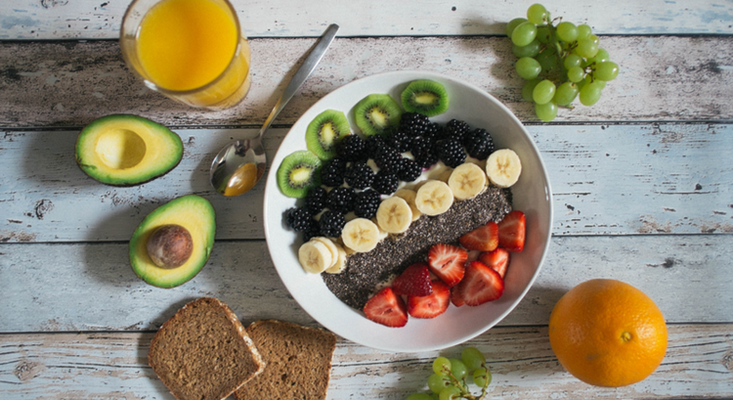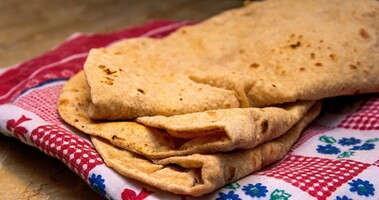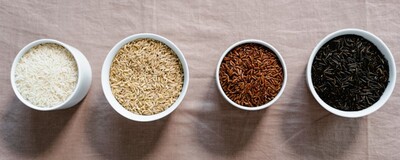
How much food and what to eat in Ayurvedic Diet Chart?
by Vaidya Ahana Shekhar
Ayurveda is popularly known as the knowledge of life, and its main objectives are to live a healthy, happy, and long life by following few regimens consistently with faith. To achieve this, what food we consume along with its rules and regulations, the daily activities we perform must be monitored. Ayurveda explains the appropriate methods to consume food and its benefits.
Basic Principles of Ayurveda Diet
Food is said to be one of the important supporting pillars of health according to Ayurveda. Consumption of an appropriate quantity of food increases the power of digestion. Understanding the quantity of food our body needs yields us good results - digestion gets easier and faster without causing any trouble. Such quantity of foods depends upon the nature of food substances, such as heavy or light, hot or cold, etc. The consumption of these varieties of foods depends on one's digestive power.
If your digestive power is more, heavy and more quantity of foods can be digested easily, but when the power of digestion is less one cannot consume more quantity as it would result in indigestion and finally constipated bowel. But in the case of lighter foods, even if consumed in excess wouldn't cause any major complications. Therefore Ayurveda acharyas have said heavy foods should be taken in half the quantity to your digestive power and light foods should be consumed to one's half satiation and too much intake of food or very little intake of food is not beneficial for your health. On that account, one should consume food based on their food capacities following the rules and regulations of intake of food. Capacities of the stomach have been explained for this purpose.
How to fill your stomach with a healthy Ayurvedic Diet plate
For proper food intake, the capacity of the stomach must be understood. The stomach capacity is divided into three parts:
- The first part is to be filled with the solid food we eat
- The second part with the liquid items we drink
- And the third is left empty to facilitate the movement of doshas.
Most of us tend to gulp down a whole lot of solid food, drink little water in the end, and go to bed with a full tummy right after or drink plenty of water in the beginning due to various factors like excessive thirst or hunger and eat very less solid food, all of these irregular food habits slowly form the roots for disease manifestations. To maintain a proportional balance in the stomach which in turn facilitates smoother digestion, the capacities of the stomach are given importance. The amount of food your body requires depends on how frequent your hunger contractions are.
Importance of hunger
Hunger contractions occur as a natural indicator that the body needs food to energize and continue with the daily metabolic activities, and the food we eat acts as a fuel for the digestive fire (agni) in our stomach which burns the fuel and helps in running the vehicle (our body) smoothly. But by suppressing this hunger, slow complications arise in our body which is dangerous to our life and health. Urges like hunger should never be suppressed, so it is advised to eat whenever you feel extremely hungry irrespective of the time. Generally, it is a notion that one should not eat at midnight, but if one feels extremely hungry it is advised to eat even then.
Important Role of Water intake in your Ayurvedic Diet Plan
Water plays an important role in digestion and metabolism, but if consumed untimely will again disrupt our digestive process. Ayurveda explains the concept of digestive fire (agni) which increases when there is a state of hunger, but the common mistake done by most of us is that we gulp down water as soon as we feel hungry thinking that it will reduce the hunger but in turn, you are basically pouring water on your digestive fire which will lead to the weakening of your digestive fire, and later when you eat your solid meal, the pace of your digestion would have reduced since the digestive fire is diminished. Hence it is advised to eat whenever you feel hungry.
Should Follow These 5 Tips while Eating
- While eating, drinking water in between each bolus is much beneficial.
- If you aim to:
- Lose weight - drink plenty of water before you eat
Drinking more water before eating will create a sense of fullness and that way you shall eat less, which will promote calorie deficit helping you lose weight faster
- Gain weight - drink plenty of water after eating
Drinking plenty of water after eating will increase the feeling of fullness and that way the metabolism slows down, promoting a way for stoutness.
- Remain as you are - drink water in between eating your food
Make a Habit of Food Intake on Time
When food is consumed at the right time it is equal to a life-protecting medicine and considered wholesome for health and life. Ayurveda acharyas have opined that eating twice a day is sufficient, once in the morning and once in the night or evening that is around 9 AM to 10 AM (in the morning) and 7 PM to 8 PM (at night)
Considering the timings, we can infer breakfast and dinner are essential meals one should not skip. According to a recent survey only about a third of adults in the United States of America regularly eat breakfast, and over 50% skip breakfast at least once a week. Breakfast plays an important role in how you start off your day by what you eat. Include proteins, carbohydrates, fats, rich fiber content foods in your morning diet and try not to ever miss your morning breakfast.
It is recommended that food be eaten only when the previously eaten meal is completely digested and there is presence of hunger. Few other factors like
- presence of lightness in the body
- elimination of natural urges like feces and urine
- a sense of clarity and pleasantness in the mind
- interest to consume food
Also contributing to the factors for the right time for food consumption.
Food Intake With Taste Preference
We are accustomed to eating any sort of food we like, in any manner we want to. There is a strict rule in Ayurveda explaining which tastes to be consumed first and its order and the reason behind it. The food we eat should possess all the six tastes:
- Foods with sweet taste should be consumed first
- Then food with sour and salt taste
- And then pungent, bitter and astringent foods.
Because of vata dosha being increased in our body as it is the end part of our digestion and the beginning of our mealtime, sweet and sour tastes balance Vata dosha. Hence they are to be consumed first. Eating sweet foods has other benefits- you feel satisfied more quickly and that way you won’t eat more than necessary. By the time we finish eating, digestion process begins. As the digestion process is initiated, Kapha is increased in our body (that is why we feel heaviness, satiation, salivation etc). To balance out this Kapha Dosha increase, pungent, bitter and astringent foods are to be taken at the end.
8 Essential factors to be considered before Consuming Food
- Nature of the food substance (if it is heavy or light for digestion)
- The methods in which food is processed (if it is washed, or boiled, churned, fried, etc)
- Combinations of substances (combination of two or three food substances yields health benefits, for example, consuming honey and ghee in equal proportion is advised while consuming fish along with milk is dangerous to health)
- Quantity of food (excess food intake or less food intake - both are contraindicated, quantity of food can be considered as a whole that is the sum of all the foods you consumed, or each food's quantity separately. The quantum of food for every individual is different)
- Place or Habit where the food substance is grown (if the food is grown in dry region - vata will be predominant, foods grown in marshy areas - kapha predominance)
- Time of food intake (depends on age, day and night factors)
- Rules of dieting (eat hot and fresh foods, eat according to proper quantity, do not eat in a hurry or very slowly, eat at the desired place, focus on what you eat, etc)
- Habit of the individual who consumes food (he or she is responsible for him or her own habitual food intake at a regular period, habitually, in proper quantity and quality)
Wrapping Up
What we gulp down our gut plays an important role in sustaining a healthy and a happy life, so please be gentle with yourself and give equal priority to eating right as much as other priorities in your lives. Nevertheless, keep in mind to always understand your body constitution and metabolic strength. Love and respect the foods you eat learn to be grateful physically and mentally and remember only through consistency can good health be achieved.






